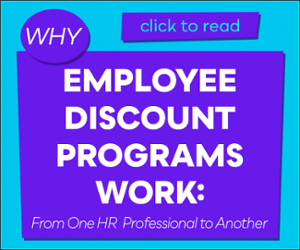While most companies adopt a traditional work schedule of forty hours per week, generally completed in the form of five 8-hour days, a new schedule is starting to gain popularity due to the many employee benefits it brings. The 9/80 schedule refers to a system in which employees work a full 80 hours within only 9 days, earning an extra day off every two weeks.
The 9/80 system may not be for every employer, but it does offer certain employee benefits and incentives that can encourage its use in more workplaces today. Below, we will be giving you the complete rundown of a 9/80 schedule so you can understand exactly how it works. We’ll also be giving you information on the pros and cons of a schedule like this so you can decide if the 9/80 workweek is best for your company.
The Basics of a 9/80 Schedule
With a traditional working schedule, an employee will work 80 hours over the span of two weeks. Each week consists of five 8-hour days, giving the employee two days off each week.
In a 9/80 schedule, the employee will still work 80 hours over the span of two weeks, but the time worked will be compressed into 9 days instead, thus giving the employee an extra day off at the end of the second week.
To help you visualize this, we’ve given an example of what a 9/80 schedule might look like below.
|
|
Week One |
Week Two |
|
Monday |
8 am – 6 pm |
8 am – 6 pm |
|
Tuesday |
8 am – 6 pm |
8 am – 6 pm |
|
Wednesday |
8 am – 6 pm |
8 am – 6 pm |
|
Thursday |
8 am – 6 pm |
8 am – 6 pm |
|
Friday |
8 am – 5 pm (Second week begins after 4 working hours) |
Day Off |
|
Saturday |
Day Off |
Day Off |
|
Sunday |
Day Off |
Day Off |
By the end of the two weeks, employees will have worked 44 hours during week one, and 36 hours during week two, earning the extra day off on Friday. On the next Monday, after having three days off, the work schedule starts all over again.
It is important to note when figuring out payroll for the 9/80 schedule that the first Friday marks the end of the first 40-hour week and the start of the second 40-hour week; the hours from 8 am until noon should be designated to the first work week and the hours from 1 pm until 5 pm designated to the second.
Your company may not operate on these exact hours (for example, your employees may work 7 am to 5 pm instead), but the principle of the 9/80 schedule is the same.
Benefits of Working 9/80
There are several benefits that your employees might gain if you choose to implement a 9/80 schedule in your business.
Increased Productivity
In general, an extra day off can improve employee morale and encourage them to work harder (and with greater productivity) during the week. Employees may also have a more positive outlook on their job working the 9/80 schedule as they are allowed extra time to complete their own tasks.
After all, happy employees make for a better, more efficient workforce. There may also be a decrease in time off requests as employees are able to run errands during the extra day off.
Improved Work-Life Balance
When employees are able to secure an extra day off, they are able to complete any outside interests they may have or spend more time with their family. Employees will also be able to complete errands during their days off that might be difficult under a traditional schedule, as most doctors’ offices, school events, and government buildings work around limited weekday hours.
Easier Commutes
A 9/80 schedule can be adjusted so that employees avoid the major commuting rush hours. Plus, employees will have one less day that they need to be present in the office. The 9/80 schedule makes for easier commutes, which in turn leads to more employee free time and greater employee satisfaction.
Flexibility
One concern with the 9/80 schedule is whether or not a business can afford to have no employees working for an extra day a week. However, the 9/80 schedule is quite flexible and employers may be able to divide their employees so that half of the team receives the Friday off and the other half receives a Monday off. This way, all employees receive a three-day weekend and the employer does not have to close for an extra day every two weeks.
Disadvantages of Working 9/80
As with anything, there are some potential downsides to implementing a 9/80 schedule in your company.
Long Workdays
Despite the promise of a three-day weekend, some employees find the longer work days involved with a 9/80 schedule to be challenging. This may mean that they don’t put forth their best effort during the day or that they have increased levels of stress and dissatisfaction. It is important to survey your employees before implementing a 9/80 schedule to gauge how well the change in working hours will be received.
Overtime Challenges
One of the hardest things to work around when starting up the 9/80 system in your workplace is the challenges with calculating overtime and paid time off. For many employees who aren’t used to the 9/80 workweek, they may end up starting extra products during the additional hour and running up overtime hours. Payroll may also be difficult to calculate at first, causing issues with overpaying or underpaying for overtime.
Decreased Productivity During Extra Hours
While a 9/80 schedule can bring an overall increase in workplace productivity, you may notice that employees find it hard to stay on task and complete assignments during the last hour of the day. This could be caused by exhaustion with a longer day or by a lack of adjustment to the new schedule.
Employee Scheduling Challenges
Smaller companies and those businesses that need to be open during most regular business hours may find that adopting a 9/80 schedule is difficult. This is due to the fact that the company is not able to let every employee take off on the same day; there is some flexibility for this, but many companies find the employee schedule challenges too much for a successful use of the 9/80 system.
Finding the Best Schedule for Your Employees
At the end of the day, the best schedule for your employees will be one that allows them to have an increased sense of workplace satisfaction and an improved level of productivity while allowing you to run your business efficiently.
If you believe that a 9/80 work schedule is the answer to your scheduling needs, be sure to inquire with employees on their feelings for this schedule and create a smooth transition into this unique workweek style so you can ensure the best for both employees and the company.





